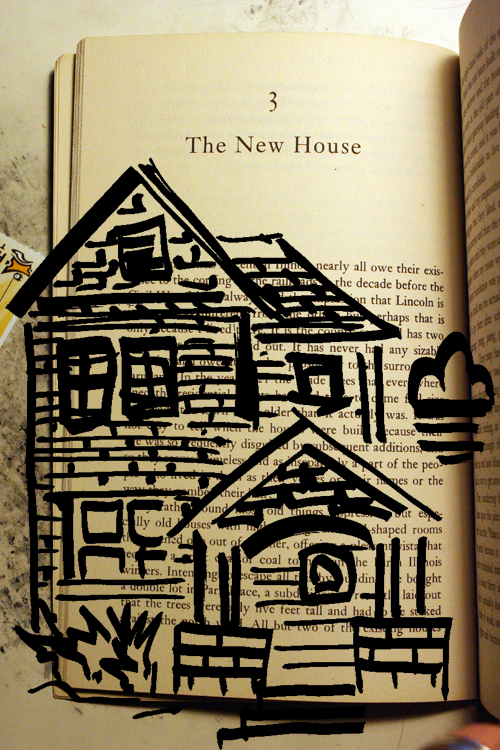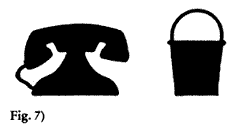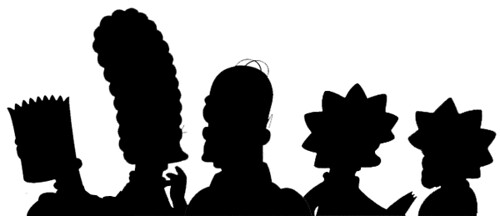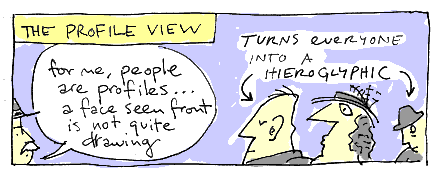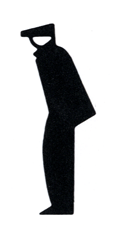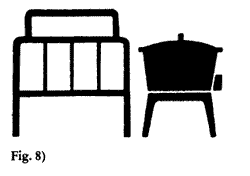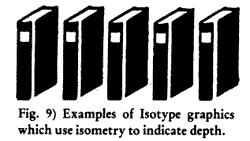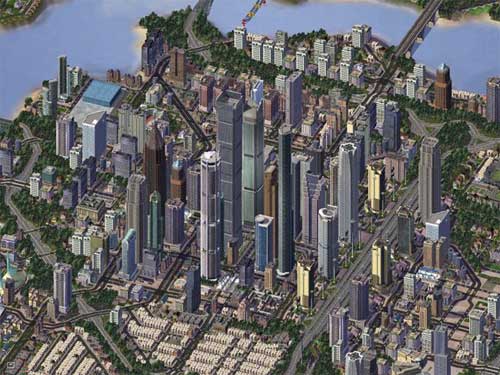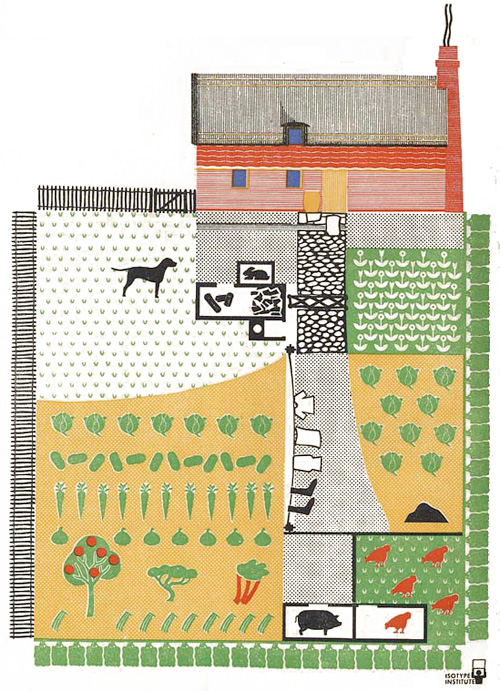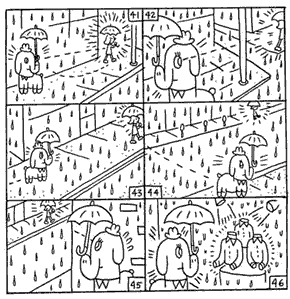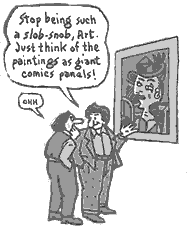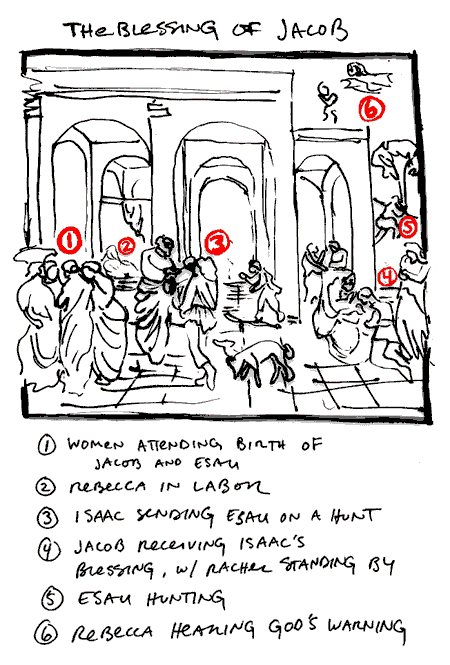In the midst of the mortgage crisis, Meg and I went out and bought a house. We closed today, we move in this weekend. In the five years that we’ve known each other, we’ve never lived in anything bigger than a one-bedroom apartment. Now we both have offices, a washer/dryer, a two-car garage…it’s very surreal.
When you live with someone in a tiny apartment, you’re always in close proximity. You never see that person more than 10 or 20 feet away, because there isn’t 10 or 20 feet to gain between you. You get used to seeing them from a particular distance.
Meg and I often meet each other for lunch on campus. When I see her from far away, walking towards me, she looks like a different person—she looks like a stranger, or someone I just met. It’s like a visual refresh. (I wonder if this visual element isn’t part of the hidden magic of what self-help couples books tell you to do: meet for dinner, but take separate cars…)
I’m reminded of this passage from Dylan Horrocks’ Hicksville:
Maps are of two kinds. Some seek to represent the location of things in space. That is the first kind – the geography of space. But others represent the location of things in time – or perhaps their progression through time. These maps tell stories, which is to say they are the geography of time. […] But these days I have begun to feel that stories, too, are basically concerned with spatial relationships. The proximity of bodies.
I wonder about this proximity of bodies. I wonder how we will grow in a bigger space, with an upstairs and downstairs. How our changing spatial relationships might alter our story…
Above is a sketch of the house, superimposed over a page from William Maxwell’s wonderful short novel, So Long, See You Tomorrow.
